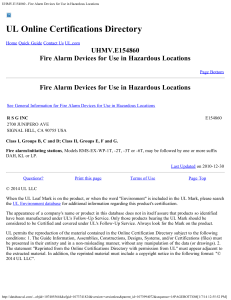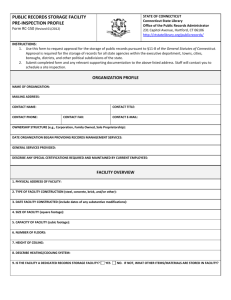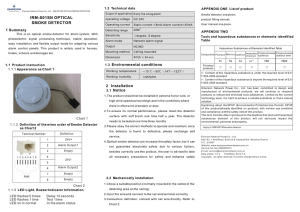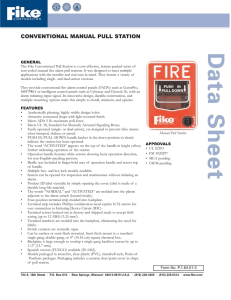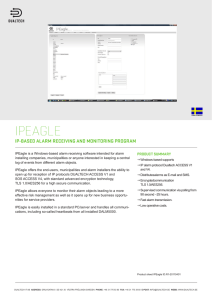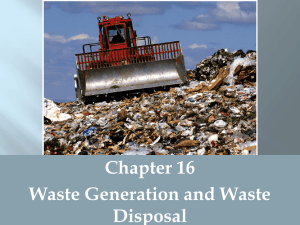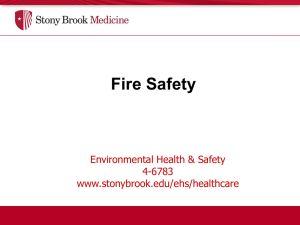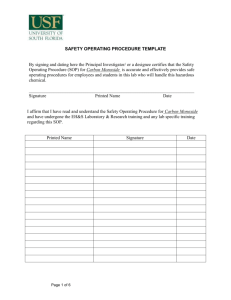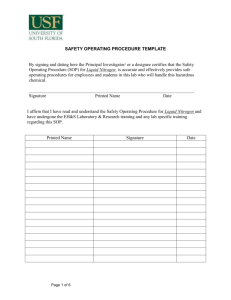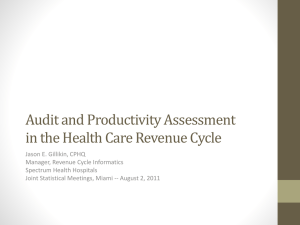Safety in Hospitals
advertisement
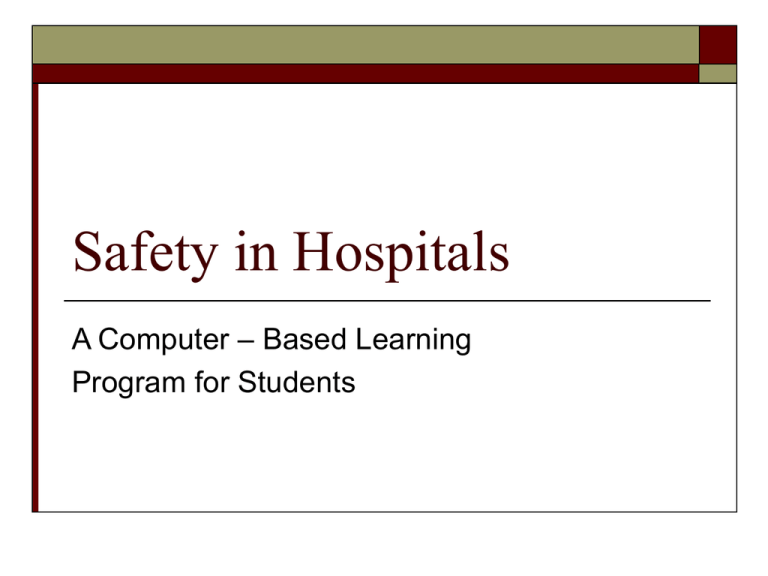
Safety in Hospitals A Computer – Based Learning Program for Students This program covers safety information related to… Fire Safety Electrical Safety Life Safety & Environmental Safety Personal Safety / Security Every hospital has a specific fire safety plan in the event of a fire emergency. What to Do in Case of a Fire Remember the acronym RACE Rescue anyone in the immediate area of the fire Activate the alarm by calling the hospital operator and pull the fire alarm pull stations Contain the fire- close doors and windows in the immediate fire area Extinguish the fire with the proper fire extinguisher Buildings are designed with fire safety in mind. Fire/Smoke walls help contain smoke into compartments. Fire Doors shut automatically when smoke alarms are activated and also help to contain fire. Corridors are designed to give a safe way to exit the building. Every hospital has a code name for a fire emergency. The appropriate hospital code word should be used when reporting a fire. Fire drills are performed periodically to test all the systems involved in the fire safety program. It is important to be familiar with all the emergency codes for each hospital. Fire Safety Equipment Fire alarm pull stations near exits and stairwells. When a fire alarm pull station is activated… -the fire alarm will sound -Fire doors will close -strobe lights are activated -Elevators move to the ground floor and are disabled. You should be familiar with the location and operation of fire extinguishers!! (click for more information) Equipment & Electrical Safety All hospital equipment is maintained by the hospital’s maintenance department. To avoid patient harm, suspected problems with equipment should always be reported. All household appliances/equipment should be visually inspected for any damaged cords or parts. Equipment & Electrical Safety Power cords can be hazardous. These should be inspected for exposed wire or damaged plugs. Power cords should always be unplugged by pulling on the plug, NOT by pulling on the cord. In the event of a power outage, hospitals operate on emergency generators. Some hospital areas will have normal power function, while others may have limited power in emergency receptacles. You should know where the emergency receptacles are in your assigned areas. Hazardous Material The Occupational Safety and Health Administration (OSHA) has issued a Hazard Communication Standard which provides all employees access to information regarding hazardous chemicals. Hospitals are required to provide staff with information regarding hazardous chemicals used within the facility and instructions for handling, disposal and clean-up of these chemicals. All of this information can be found in the Material Safety Data Sheets (MSDS) kept in every department. Safety procedures for handling radioactive materials should be displayed in areas where these materials are used or stored. Life Safety / Environmental Safety Hospitals are challenged with maintaining a safe building and environment. Alarms on medical equipment are there for a reason. They should never be silenced or adjusted by nonlicensed personnel. Hallways should be free of clutter and equipment. Hospitals are constantly growing and changing. Hazardous construction areas are clearly marked and signage should be followed and respected at all times. Stay clear of construction areas! Personal Safety / Security Everyone has a role in keeping the hospital a safe place. Hospital security staff has the responsibility to protect staff, patients, visitors & property. It is important to report any suspicious activity or perceived threats. Personal Safety / Security Always be aware of your surroundings. Walk with a group when traveling to and from the hospital. Keep valuables out of sight and limit the amount of cash you carry. The use of Identification badges are essential in promoting hospital security. Nametags and school badges must be worn at all times. Anyone not wearing a badge should be treated like a visitor. Maintaining Hospital Safety is a shared responsibility between all healthcare workers, staff, students & volunteers. Think safety first!
